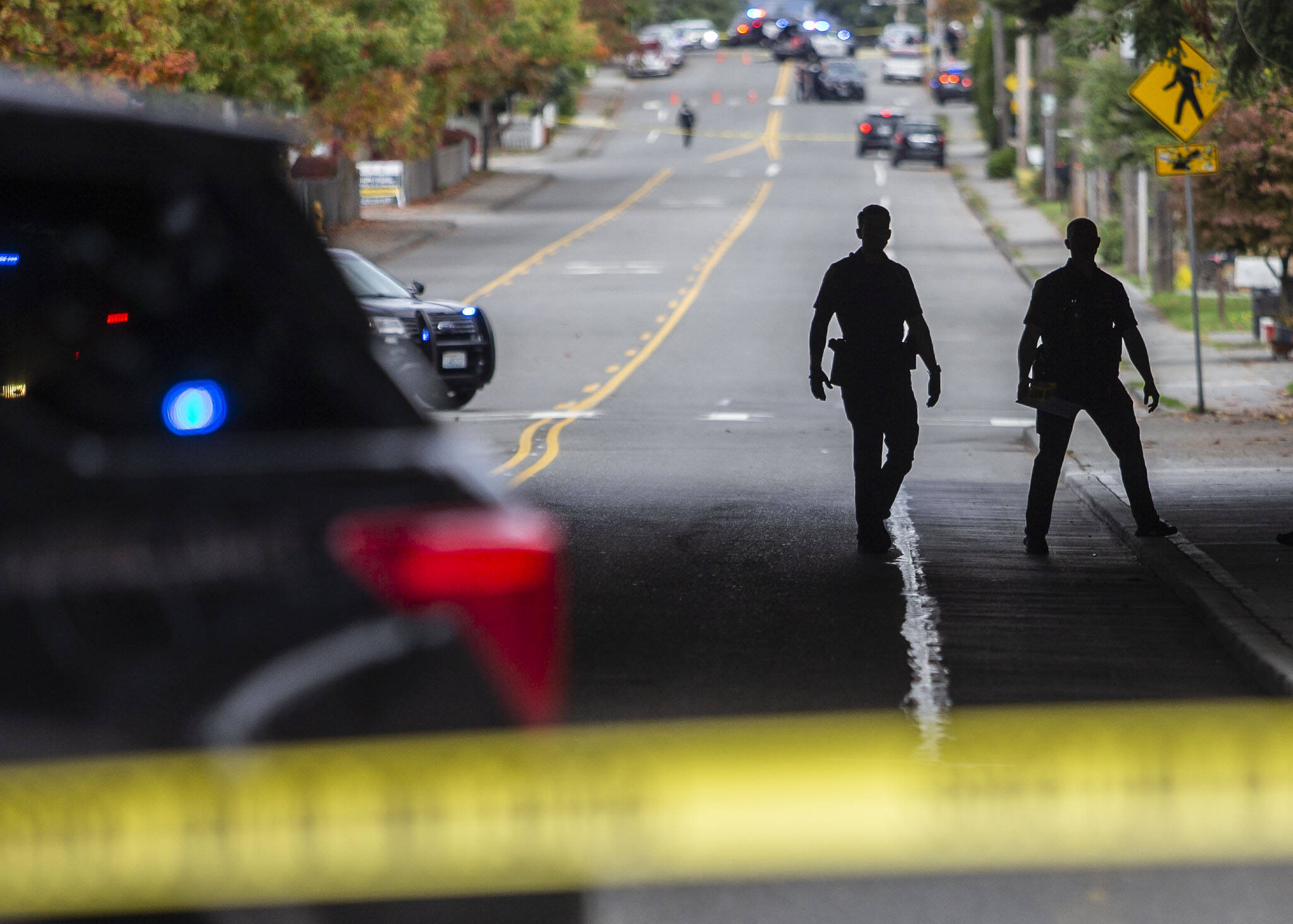EVERETT — In November, Snohomish County voters will face a choice to raise sales taxes in the name of funding criminal justice and public safety.
On Wednesday, the County Council unanimously decided to put the 0.2% sales tax increase on the ballot. The two cents on every $10 purchase is expected to generate more than $39 million annually.
The money would target the opioid epidemic by pouring more money into the county’s law and justice system and community programs.
“Illicit drugs are cheaper than ever, readily available and extremely addictive,” County Executive Dave Somers said at a council meeting on Tuesday. “This crisis has touched many families, including my own.”
In a presentation to the council, Somers said the drug epidemic affects every corner of Snohomish County.
The county has already created solutions to bring people out of crisis, Somers said, adding that the additional revenue would build on those programs.
“I do believe we need to act now,” Somers said. “The health of our economy and safety of our community demand that we take new approaches.”
The tax would cost residents an average of $46.58 per year, according to a report from county staff.
Under the Somers’ plan, the tax will be used for seven main purposes:
• Hire more law enforcement officers;
• Boost resources to the courts, Prosecuting Attorney’s Office and Office of Public Defense;
• Build and manage a secure withdrawal management facility for involuntarily committed patients;
• Build and manage a second community resource center outside of Everett;
• Expand programs to reduce the “visible impacts of the drug epidemic;”
• Help emergency medical services respond to drug-related calls;
• And create a program to keep youth from joining gangs or committing violent crime.
The money would be split between the county and its cities. Snohomish County would receive 60% of the revenue, while the remaining 40% will be divided among the cities on a per capita basis.
With the county’s portion, 51% will be dedicated to public safety purposes, like cops and courts, while 49% will go to “other public safety and health measures,” according to county staff.
In a letter to council members, County Prosecutor Jason Cummings and Sheriff Susanna Johnson expressed their support for the ballot measure.
“Simply put, the County’s law and justice system requires additional resources,” they wrote.
Both Johnson and Cummings were in the audience Wednesday as the council put the measure on the ballot.
The priciest item is constructing a secure detox facility for involuntarily committed patients. With the first year’s revenue, $4.5 million of the tax will go to the facility’s construction and operation costs.
The state only manages 77 beds for secure detox and the closest facility is in Tukwila, so getting Snohomish County residents to treatment they need has proved challenging, Somers said.
The second-most expensive item is hiring law enforcement officers, expected to take $4.2 million of the county’s annual sales tax revenue.
Three cities in Snohomish County already have the highest sales tax rate in Washington.
Lynnwood, Mukilteo and Mill Creek lead the county and state with a rate of 10.6%, which would only increase if the November measure passes.
If the increase passes, the Snohomish County cities will have the highest rate on the West Coast, surpassing six cities in California’s Alameda County that levy a 10.75% sales tax.
Council member Nate Nehring had concerns with increasing the sales tax countywide, but said “public safety is the number one responsibility of local government.”
“As with any new tax proposal, I think it’s only appropriate that this decision rests with the voters who can weigh the burden of additional taxes on one hand with the clear benefits of additional criminal justice revenues on the other,” Nehring said.
In 2016, Snohomish County voters narrowly rejected a similar sales tax increase.
In a meeting last month, council member Sam Low said part of the reason why voters rejected that proposal was because the spending plan was not clear or transparent.
This time around, Low said voters can be “confident” with the the county’s comprehensive plan.
“This will undoubtedly improve quality of life,” council member Megan Dunn said.
No one took to the podium to address the council in public comment Wednesday.
The county is now on the lookout for volunteers to serve on the pro and con committees, whose arguments on the tax would be featured in the local voters’ pamphlet this fall.
The county public safety sales tax will join a plethora of tax increases on the August and November ballots.
In August, Everett voters will decide on a property tax increase while voters outside of Everett will decide whether to expand the Port of Everett’s boundaries to include nearly the whole county.
The county measure will appear on the general election ballot Nov. 5.
Jenelle Baumbach: 360-352-8623; jenelle.baumbach@heraldnet.com; Twitter: @jenelleclar.
Talk to us
> Give us your news tips.
> Send us a letter to the editor.
> More Herald contact information.

























